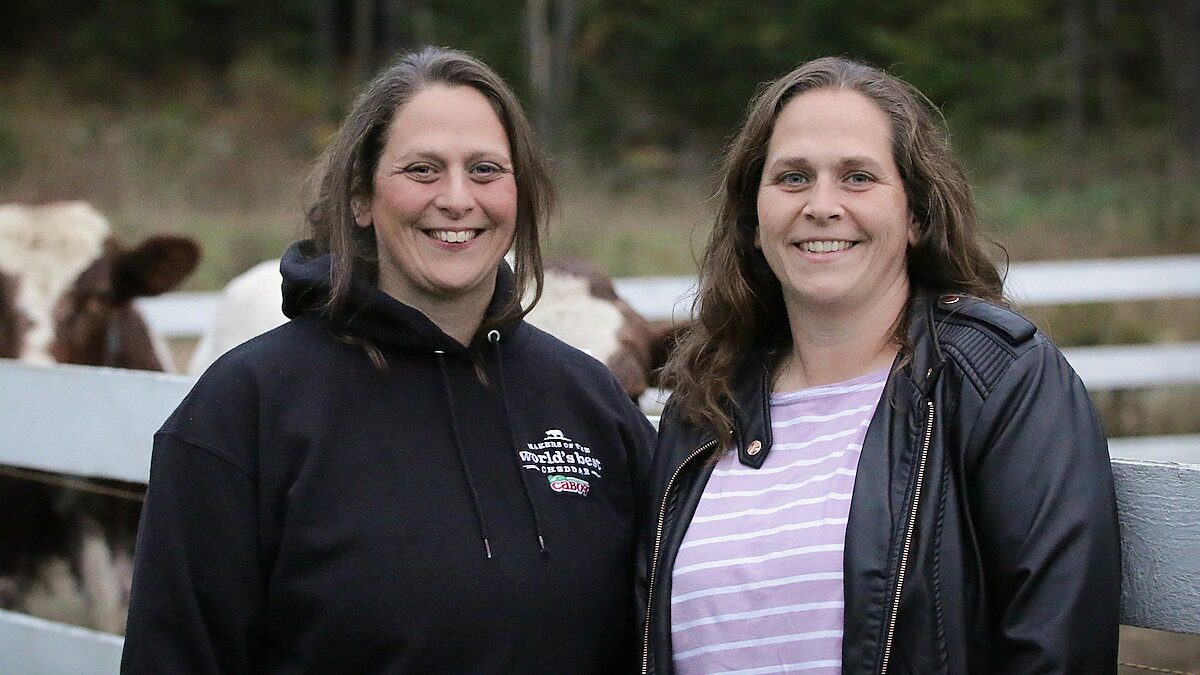The Power of Technology on Today’s Dairy Farms
TOPICS
TechnologyGuest Author
Special Contributor to FB.org

photo credit: Beth Hodge, Used with Permission
Guest Author
Special Contributor to FB.org
By Beth Hodge @echofarmbeth
I never thought that one of the most important tools on my family dairy farm was going to be our Wi-Fi connection. Like nearly everyone, my phone has become more than just a simple communication device – it’s my connection to the world. Living tucked in a small valley and spending my time in dairy barns with metal roofs, cellular service was notoriously a problem in our little pocket of New Hampshire. There was that one spot on the driveway on a clear day, if you held your hand up high and at just the right angle, you just might hear the “ping” announcing a text message.
Our location close to the New England population centers around Boston eventually meant that broadband internet found its way into our lives and with it, came a Wi-Fi signal in the barn and the pings of messages that come with it!
Using technology can help us bridge gaps in location and even time zones.
My sister, Courtney, and I started our first-generation farm after a few summers showing cows and getting involved in our local 4-H club. We were lucky enough to have incredible support from our parents, who loved the idea of starting a business together that included value-added processing of our own puddings.
As our business has grown from that first handful of Jersey and Milking Shorthorn heifers, our interests and lives have grown as well. Courtney now has two children, ages 7 and 11. I have developed a passion for organizations like Farm Bureau and traveling.
Then, four and a half years ago, we decided to install a Lely robotic milking system to create more flexibility for family, volunteer commitments and travel. Robotic milkers provide an automated way for cows to be milked on their own schedule, rather than by humans at specific times each day.
We knew that taking the plunge into AMS (automatic milking systems) would bring labor savings and flexibility to our schedules. We didn’t anticipate how much data would come with it and the power of that technology to manage our herd as individual cows. The AMS has created an environment that can be continuously improved, with an experience for the cow that is comfortable, allowing her to perform at her best during every lactation.
The new milking system includes activity neck monitoring collars that constantly “learn” about each individual cow’s behavior. Each cow is flagged for attention when activity and eating behaviors are different from her norms. The system constantly monitors each cow’s temperature and milk quality, allowing us to find health problems faster and intervene with appropriate therapeutic measures when needed. There’s incredible power at our fingertips, with the ability to see challenges in real time and quickly make corrective tweaks.
One of the overarching challenges inherent in being involved with agriculture is how much is out of our control. The weather and even a global pandemic can create roadblocks. We need to constantly evolve to stay ahead of challenges. Today’s farmers have to be more flexible and creative to solve problems and all of us in different types of agriculture must find ways to work together. This is where the real power of technology can be felt. The same Wi-Fi that connects me to the world, connects me to experts from near and far.
And then there’s the power of social media and the way it connects us to other farms around the globe. A problem with my robot in the middle of the night might have once meant a call to a technician who would travel to our farm. Now, it can be a question posed to the Lely Facebook group, and while it’s 1 a.m. in New Hampshire, it’s 7 a.m. in the Netherlands. There’s a farmer there who has seen the problem before and can help me find a way to solve it. The power of being able to connect with other farmers became even more important during the pandemic, when we were isolated on our farms. Using technology can help us bridge gaps in location and even time zones. We’ve truly come a long way from just that little “ping.”
Beth Hodge is a dairy farmer and Farm Bureau member in New Hampshire. She’s also a member of the American Farm Bureau’s Grassroots Outreach (GO) Team and the organization’s Partners in Advocacy Leadership Class 10.